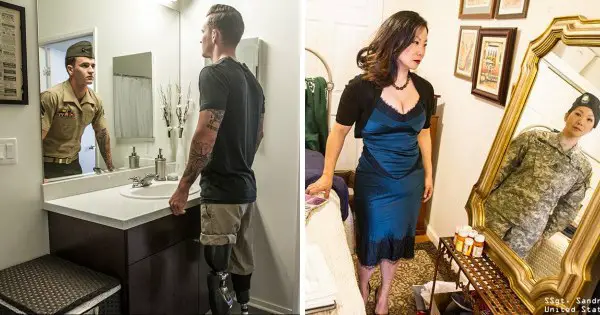“This is what the war looks like when it’s done for many people.”
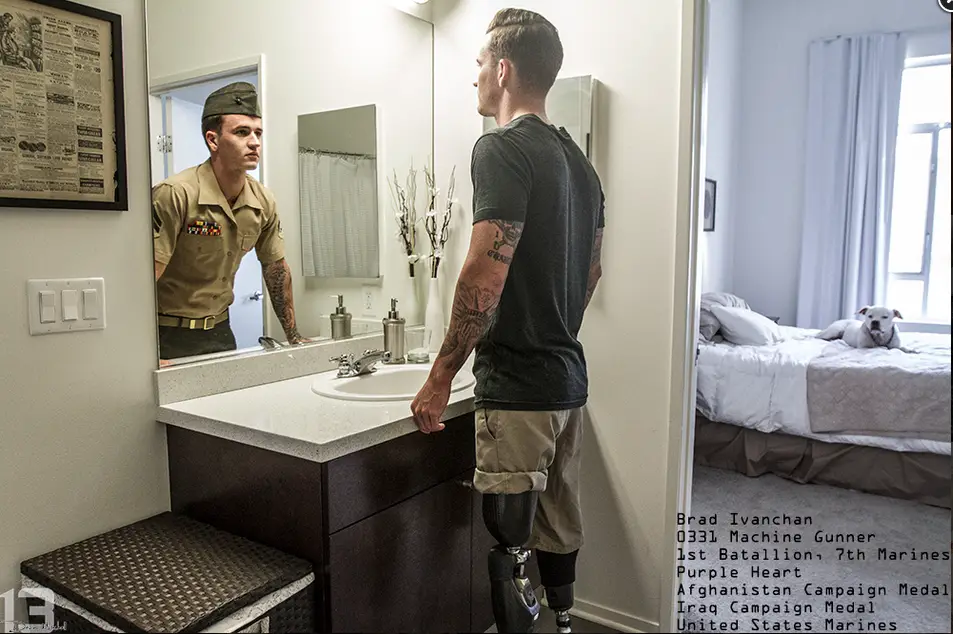
Brad Ivanchan is already a war veteran at the age of 24. Having lost both his legs in Afghanistan, the former Marine is a survivor of Post-Traumatic Stress Disorder — he now literally climbs mountains, only months after climbing out of the hospital bed.
But sadly, other war heroes are not as lucky.
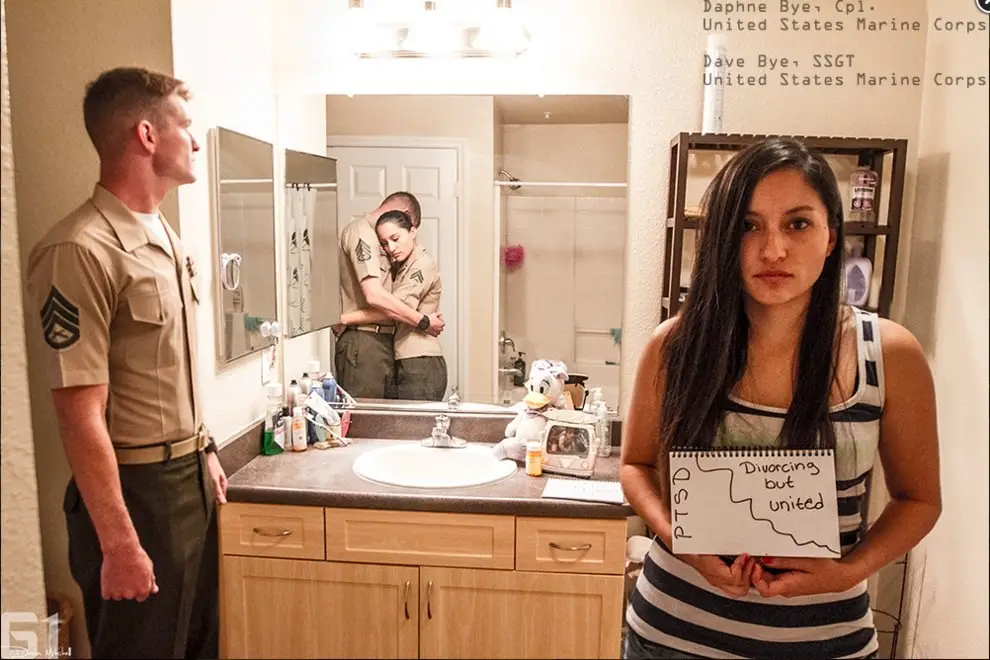
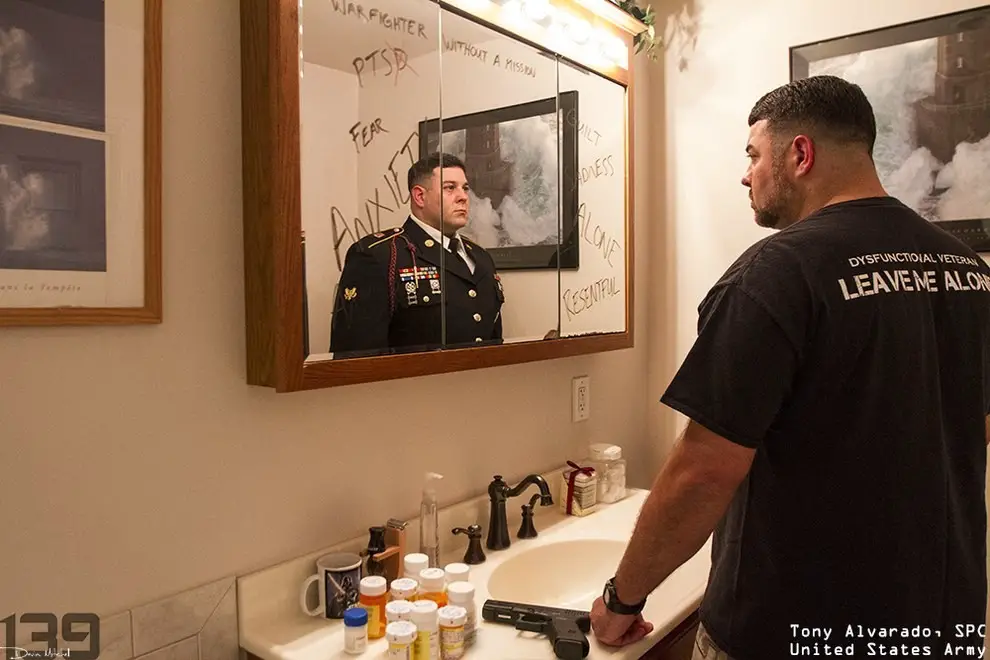
For many veterans coming home after their service, the war doesn’t end when their plane lands on home soil. They battle a new, more sinister enemy, one they find hard to explain and therefore rarely get help for.
This is what The Veteran Vision Project aims to do: provide a visual representation of veterans’ inner turmoil, in the hopes of spreading awareness for a condition that not many people outside the service can understand.
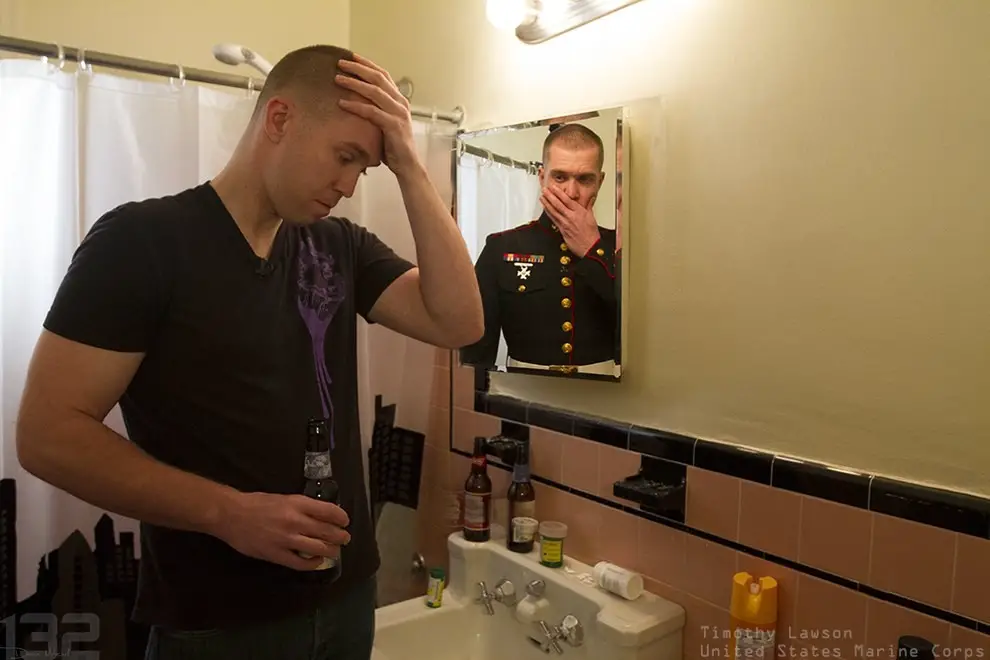
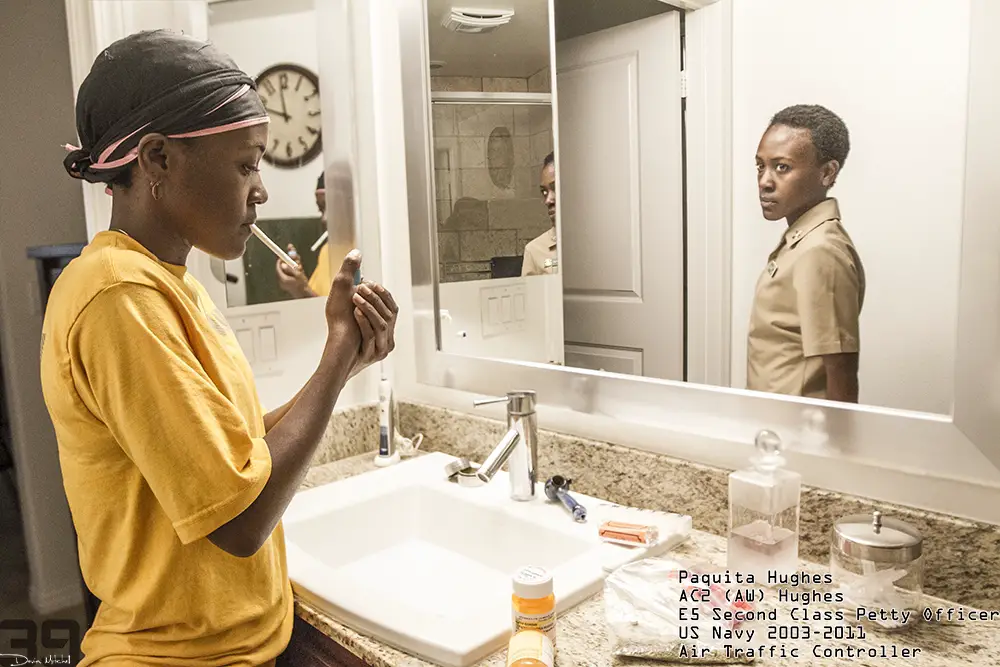
As part of an essay for an application to graduate school, photographer Devin Mitchell started photographing veterans in August 2014 in their homes: one picture of them as their veteran self, and another that described their civilian self. He would give them the artistic freedom to choose their own props, clothes, poses, and what kind of message they wanted to convey. When he composited the two portraits together, the results were astounding.
“[The project] is an opportunity for people to speak without having to say something,” Mitchell said.
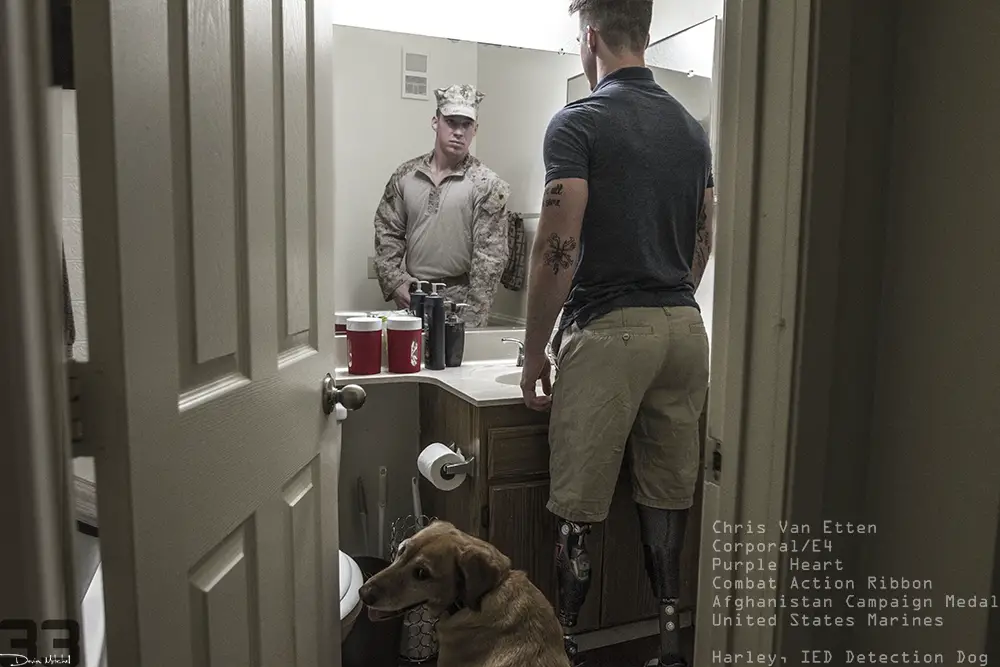
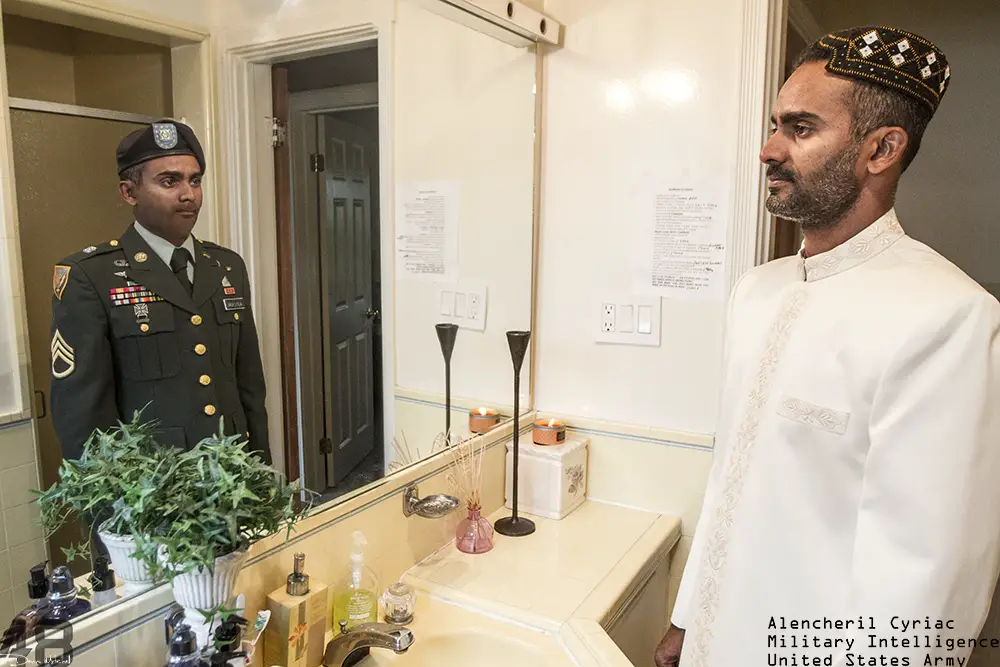
“There are two sides to this series,” Mitchell said. “It spreads awareness about the veteran community, the challenges they face during reintegration into society. But it also works as a therapy for the subjects.”
“It makes visible what they feel.”
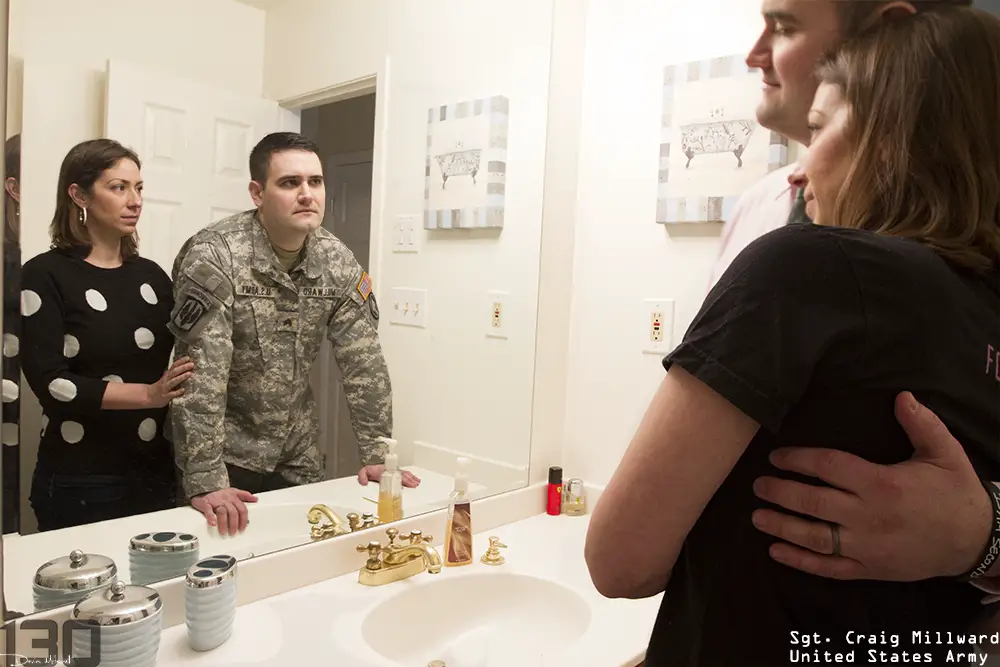
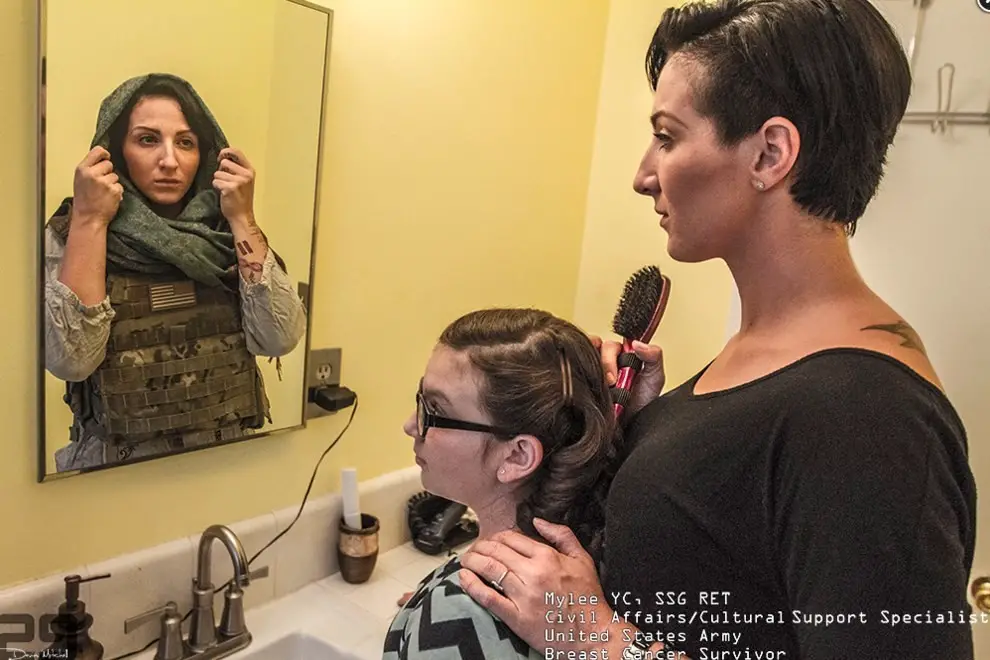
What started as a personal photo essay became a community art project. As word spread, more and more veterans wanted to participate in Mitchell’s advocacy.
“It’s an intimate experience every time,” Mitchell said. “Sometimes people will make me dinner, sometimes I’ll spend time meeting their parents, sitting in their kitchens, talking with them about life.”
But then the 27-year-old photographer was approached by a veteran to do a series on military suicide and sexual trauma. “From the beginning of the project, it was my mission to let veterans say whatever they want through my photographs,” Mitchell said. “Many people who do projects on veterans only want to take a particular angle. I want to explore all of the issues, all of the darkness.”
A report released in 2012 indicated that the veteran suicide rate averages 22 lives per day.
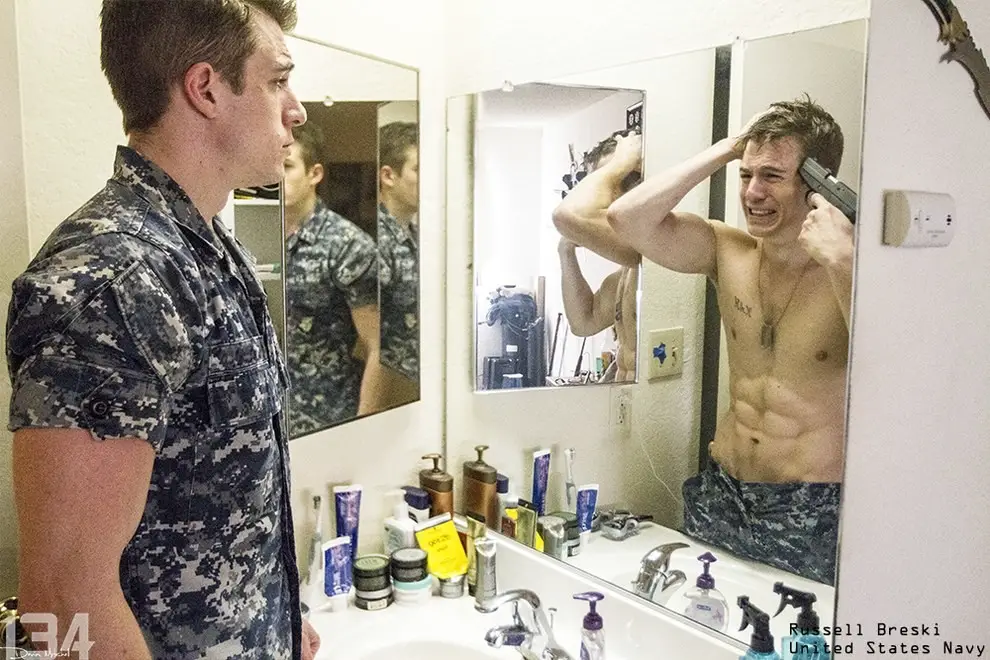
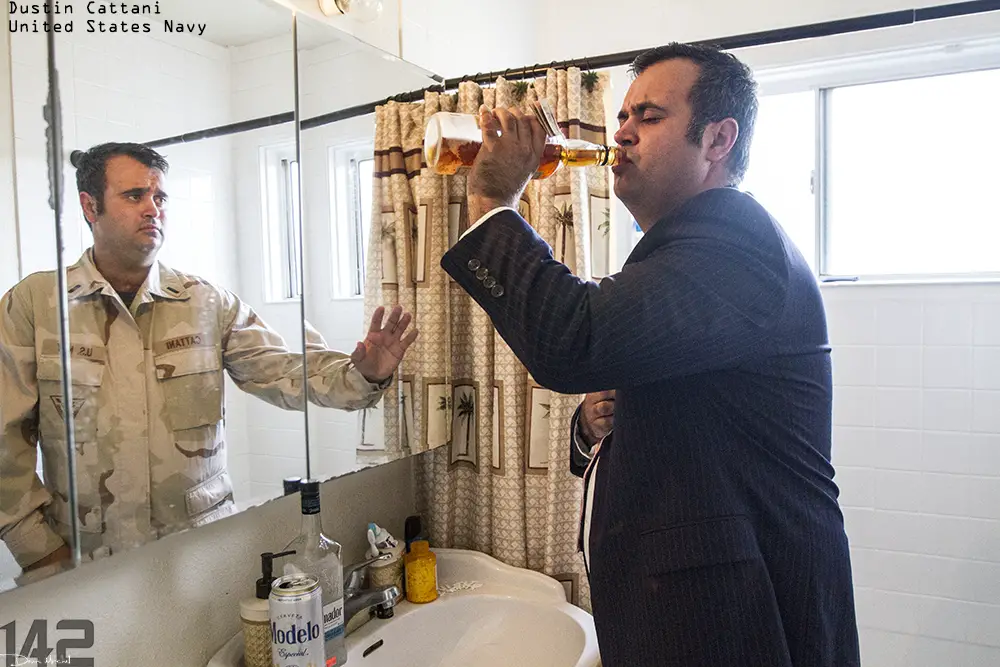
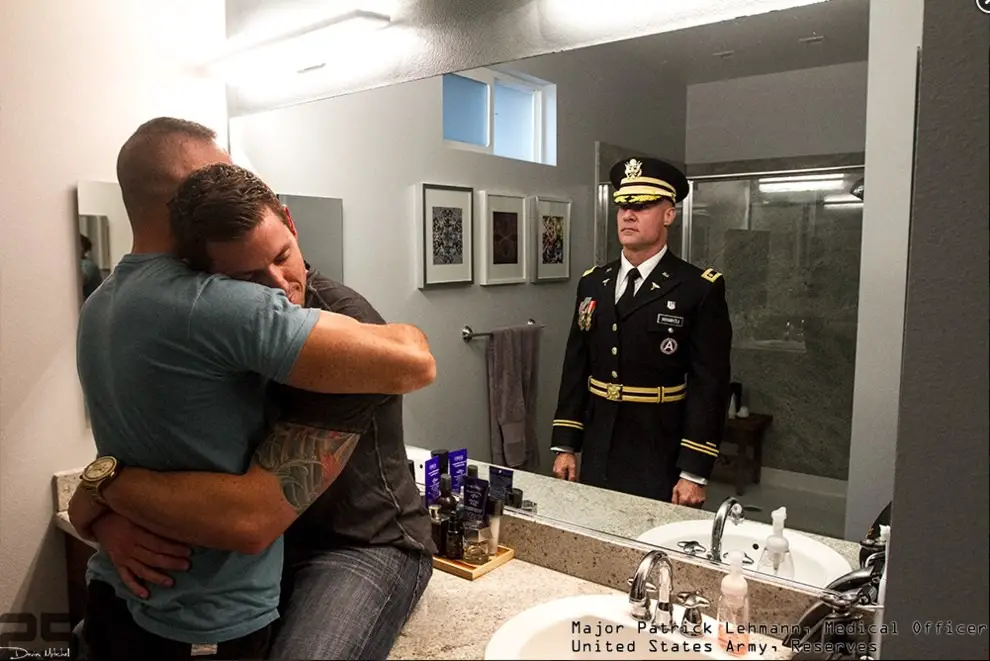
That’s roughly one life lost every hour.
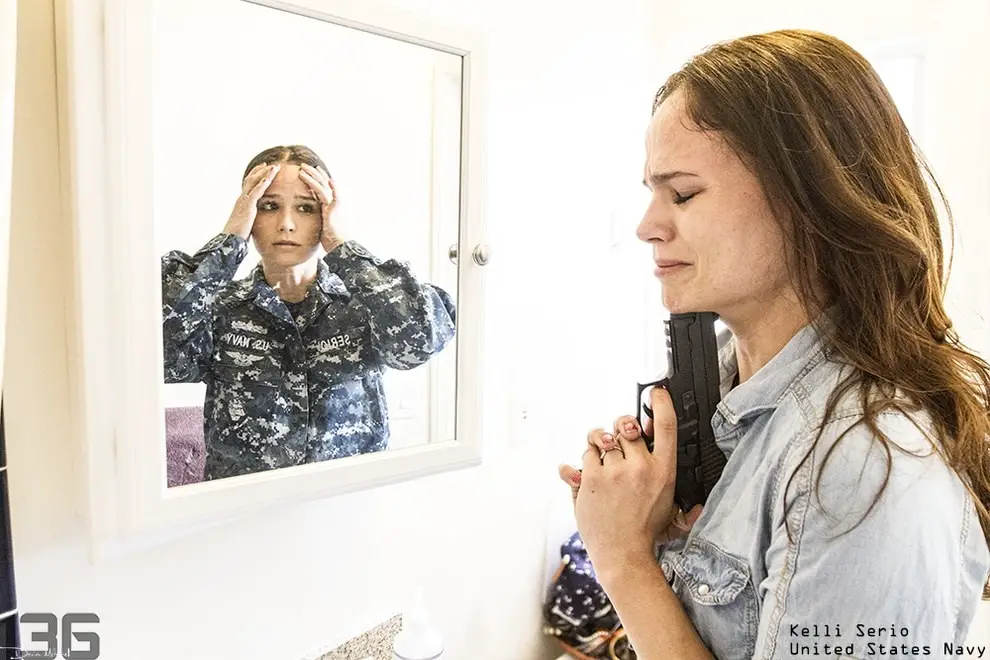
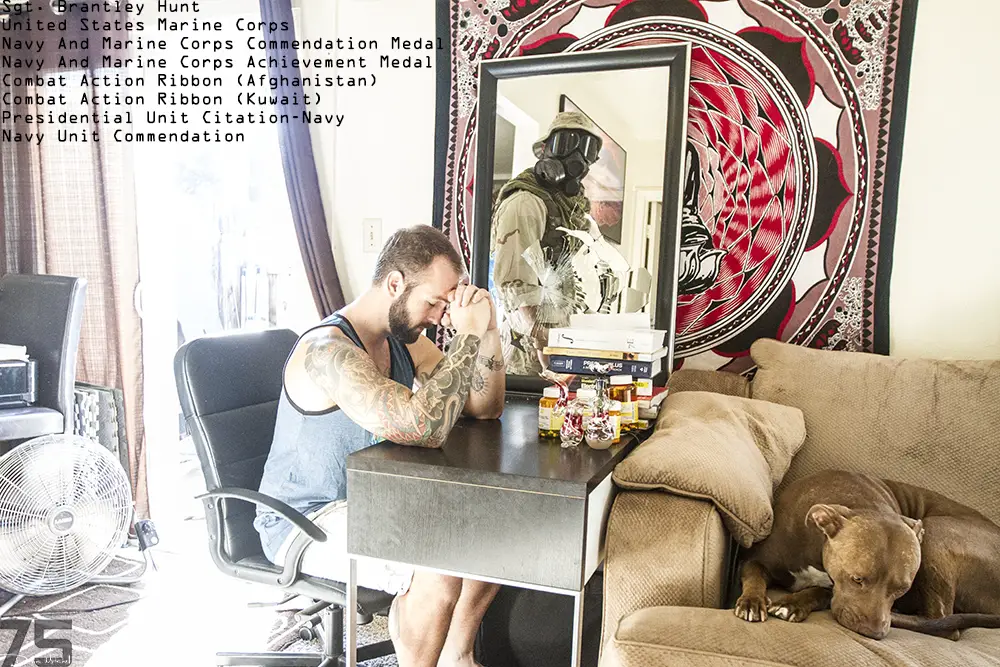
Military sexual trauma (MST) and suicidal tendencies among military actives and veterans are found to be strongly linked.
An annual study on military sexual assault found that approximately 26,000 men and women are sexually assaulted in the armed forces. About 86% of these go unreported.
Sandra Lee was one of those 26,000. A struggling survivor of sexual assault, her photo depicts a strong woman surrounding herself with music and companionship. But in her reflection, the sadness in her eyes is unmistakable.

“I think I can safely say that every person in the military has been affected by suicide,” Mitchell said. “Whether it’s something they’ve tried, or considered, or has impacted someone close to them.”
The powerful impact of this project is not only in the shocking imagery, but also in the fact that it may save a veteran’s life.
“This was healing for me because suicide is something I struggle with,” Jared Comini said in a video on the project. “I don’t [commit suicide] because of my family, and my friends that don’t get to live. I keep going for them.”
“I don’t want to be another number of service members that have killed themselves,” Comini added.
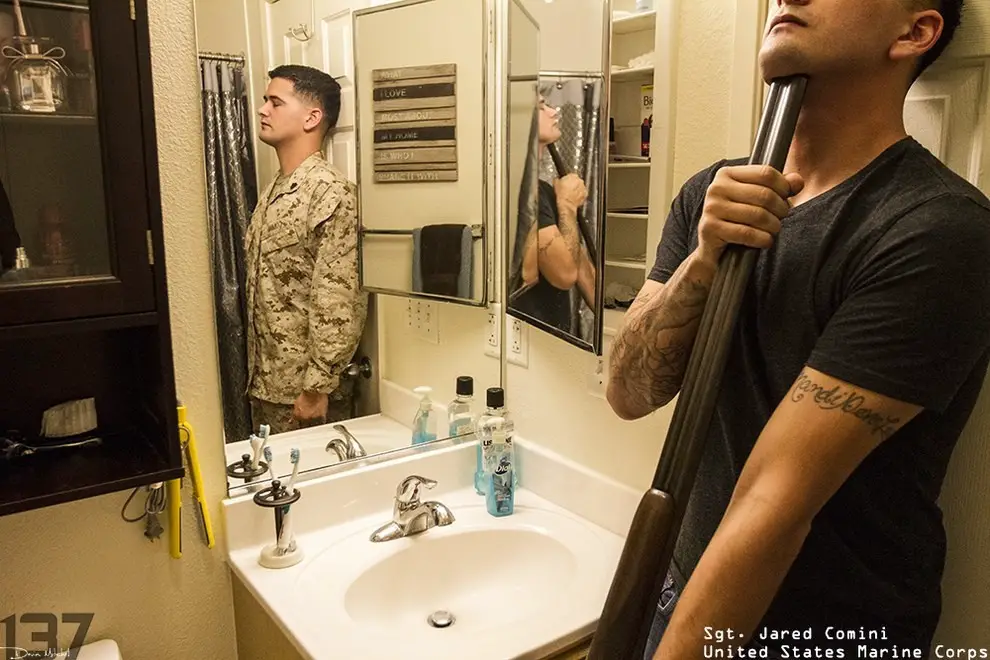
Watch the video below for some of their thoughts on Mitchell’s Veteran Vision Project:
By the request of most of the veterans and their families, Mitchell has decided to create a full-color photobook of all the captivating images taken for his project. To show your support, please visit Mitchell’s website and donate to the photobook Kickstarter campaign to help raise awareness for MST and PST.
If you are suffering from PTSD, please make sure to get the help you need. Here are some links:
Veterans and military with PTSD : Help families connect despite PTSD
http://www.militarywithptsd.org
Soldier best friend: Connects you with a service dog
http://soldiersbestfriend.org
Make the connection: Share experiences and support for veterans
http://maketheconnection.net

